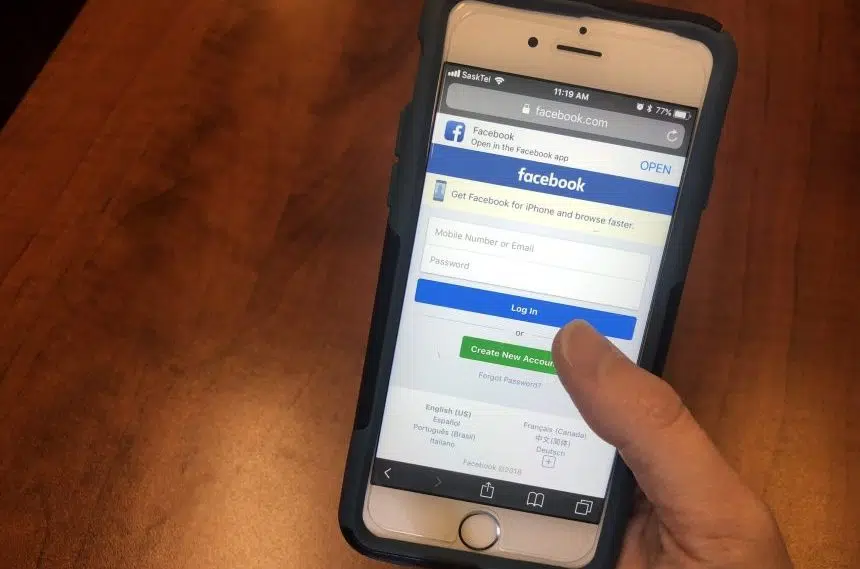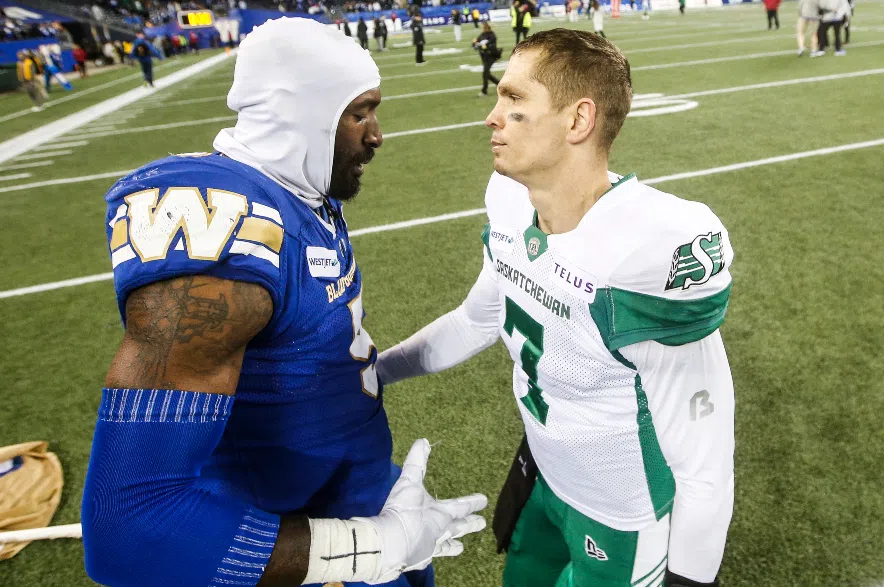A local professor says two key factors made the death of George Floyd as significant as it became: Social media and COVID-19.
In the age of information, much of society relies on social networking sites and apps like Facebook, Twitter and Instagram to communicate.
People share thoughts, ideas, opinions and more. But for a period of time after Floyd’s death, social media became an echo chamber for Black Lives Matter.
“This is a window into how younger generations feel about this issue,” said Jeffrey Walters, a professor of sociology at the University of Regina. “If it’s amped up to that much of a megaphone, you know it’s something serious.”
Walters has taught courses in mass communications and is considered the university’s resident expert in social justice and sociology.
Floyd, 46, died after being arrested by police in Minneapolis in late May. After his death, protests exploded online and around the world as people reacted to the high numbers of Black lives lost due to police brutality in the United States.
“The only reason why we have this movement for change now as opposed to pre-George Floyd is precisely, oddly enough, because of social media,” Walters said.
“Social media itself is really the new communication with regard to how people like to actually correspond with each other so it’s not surprising that it becomes really almost a go-to.”
As a caution, Walters noted the importance of social media to individuals in society should not be overblown, but still strongly considered.
“It’s really a small part of the population that actually corresponds through Twitter,” Walters said. “Sometimes we are skewing our knowledge towards a certain viewpoint that’s not necessarily representative of the population.”
Despite not everyone placing utmost importance in it, Walters said social media was the tipping point for the Black Lives Matter movement to erupt after Floyd’s death.
Its power came through showing people the brutality Floyd experienced in his final moments at the hands of four police officers.
“If we aren’t faced with it, we can actually easily ignore it and say that it’s not existing, not there or not a problem,” Walters said. “However, what happened with George Floyd and the reason that it all of a sudden blew up is because everybody quite literally had to experience it. And that’s thanks to social media.
“If it wasn’t for the videos of independent citizens showing what happened, it would be easy to ignore it.”
The Black Lives Matter movement was founded in 2013 following the killing of Trayvon Martin. The man responsible was acquitted on all charges.
The movement gained momentum in August of 2014, after Michael Brown was shot and killed by a police officer in Ferguson, Mo. The officer wasn’t charged.
“We didn’t have an in-your-face view of what happened in Ferguson, and so Black Lives Matter, for the most part, was not extraordinarily popular with the rest of society,” Walters explained.
Walters says social media is a major reason the movement has gained momentum over the years, especially since the death of Floyd.
“Things are evolving and changing and that’s really just how society rolls,” he said.
“At the end of the day, we all now have to deal with it. We can’t run away anymore and say, ‘Well, the police said this initially so we’re going to go with that even though now we can see it’s completely contradicted.’ The mirror has been put up in our society and now we have to deal with the consequences of that.”
But social media still comes with distortions, Walters cautions. Users often see only a snapshot in time through a tweet, with context filled in by the poster.
“Social media is an echo chamber. We see what we are going to see within the confines of what our own interests are. And again, we don’t see the outside context of it,” he said.
But the death of Floyd was a different phenomenon for social media, partly because of the footage and information shared repeatedly after the incident.
“It can’t be explained away because we literally can see it with our own eyes now,” Walters said.
The professor said COVID-19 also played a role.
“A lot of us are, at this moment in time, kind of bored. Most of us are unemployed or not working or going to university or school, so we’re cooped up,” Walters said. “We have stress by virtue of COVID-19 that’s going around. In many ways, this was kind of a tipping point for us to explode into activity.”
In these times of uncertainty, many have turned increasingly to social media for information and entertainment.
“For millennials and Generation Z, if you want to call them that, Twitter and social media and just technology in general is their life, that’s how they express themselves,” Walters said.
“It woke us up and now, this is essentially the perfect backdrop to be able to express it and do something about it and to be able to show our support for a social movement precisely because we’re not distracted.”
Walters called it a “perfect storm.”
“With the blackouts, with the posting, (with) people just changing their profile pics in general to a black circle, (with) all of these things coming together … there’s nothing normal with what’s going on right now. Our economy is cratered. We are beset by a plague, essentially,” Walters explained.
“Our entire lives have been completely altered and now we recognize that our society in and of itself needs changes.”
But without this perfect storm, society may not have stood up so strongly against racism and violence against minorities, Walters said.
“We wouldn’t have known it for the most part if this was not posted …,” he said. “If it wasn’t captured on video and posted to social media, then most people wouldn’t have known or even cared.”
Seeing where we are now, however, the question remains: How will Canadians move forward knowing what they do now?
“The bigger issue is all of us, again, are realizing for the first time, perhaps, in many of our lives that we are in the midst of a massive social change that is about to happen,” Walters said.
“I think the longer the conditions remain the same, we will see a change and there’s no reason not to think the conditions will stay the same.”
Walters also said he doesn’t see a way around this issue for any politician, whether in Canada or the U.S. — and what happens in the U.S. often replicates itself somehow north of the border.
As these changes develop, they’ll surely be seen — posted, shared and retweeted on social media.
“Social media is at its best when we have all sides giving information out,” Walters said.







